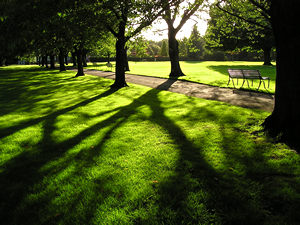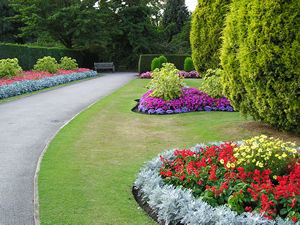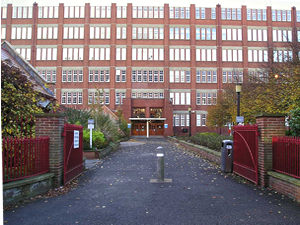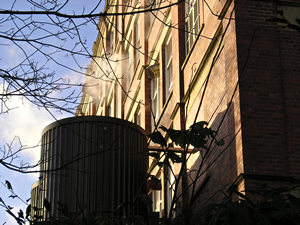Autumn 2006

This is the Homestead Park, in Clifton, York. About a hundred years ago, a member of the Rowntree family handed his back garden over to local people. On 16 July 1904, Seebohm Rowntree announced that for a month in the summer the fields behind his house were open to children attending local schools. The gardens offered "Donkey rides, swings, see-saws, sand heaps and games". In 1936 he gave the land to the Joseph Rowntree Village Trust on condition that the fields remained open to the public. This land has developed into the park we know today.

The Rowntree family’s confectionery business is well-known, as is the work of the Joseph Rowntree Foundation and associated concerns. The Rowntrees, who were Quakers, were enormously influential here in York, as other Quaker families were in other cities. All in a time when religious faith was shown not just in words but in deeds.
The religious part may not be so important these days, but in Homestead Park someone is still planting carefully arranged floral displays in neatly-edged flowerbeds. Here and elsewhere, the caring continues.
Then there’s Rowntree Park at the other end of town – which we can see from its name is another piece of land left to the city by that important family. And New Earswick too owes its existence to the Rowntree family. And it all comes from the belief in trying to provide something more than just a wage for the workforce.
I’ve been to Homestead park as a child, more often as an adult, and perhaps it’s as adults that we appreciate more the idea that people would want to use their good fortune to benefit others, and use their land to benefit them too. Because we know that now, in our time, it’s more common to take than to give.

And here’s the factory where the chocolate and other confectionery was made. After Rowntrees built it, at the end of the 19th century, the company later became Rowntree Mackintosh, then Nestlé Rowntree.
It’s not as good-looking as the Homestead Park or Rowntree’s Park – it’s just a factory. But it employed generations of York people and powered the local economy, and made the Rowntree family wealthy enough to give away large areas of land as public parks.
It seems worth noting that these parkland areas are protected from redevelopment – this becomes even more important when flats are springing up everywhere else.

As they will be here. Nestle Rowntree announced this week that they are to lay off a large percentage of the workforce and sell some of the land, as the old factory site is no longer commercially viable. This of course comes after the complete closure of Terry’s factory last year, the announcement of the closure of the British Sugar factory, and the announcement of major job losses at the Norwich Union office in York. Too much to cover on one page . . .
Many people believe that this factory won’t exist at all in a year or two.
It’s difficult to watch the way our local manufacturing industry is apparently imploding. Most people recognise the need to move with the times. But most people also recognise that something fundamental is being lost.

It’s difficult to imagine that anyone now would give away a piece of land for the ordinary public to use as a park. If you’ve got some land in York and it’s not earning you enough money, it’s best to flog it for a fortune and build some flats. Still, thanks to the old-style, more caring approach of our original chocolate makers, at least we have some nice parks to sit in when we’re all unemployed.





Thank you for adding a comment. Please note that comments are moderated, but should appear within 24 hours.